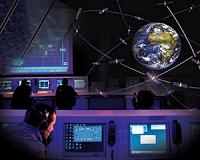 |
Moscow, Russia (RIA Novosti) Dec 22, 2010 The launch of Russia's new-generation Glonass-K satellite has been postponed until 2011, the Defense Ministry said on Tuesday. The satellite atop a Soyuz-2.1.b carrier rocket was to blast off from the Plesetsk Space Center on December 28. "Preparations have not been completed for the ground complex to navigate the Glonass-K spacecraft," the ministry's statement said. The Glonass-K, which has a service life of 10 years, will beam five navigation signals - four in the special L1 and L2 bands and one for civilian applications in the L3 band. A Proton-M carrier rocket with three Glonass-M satellites veered off course and sunk in the Pacific Ocean on December 5. The failure was attributed to a series of manufacturing mistakes. The satellites were supposed to finalize the creation of Russia's Glonass Global Navigation Satellite System. Glonass is Russia's answer to the U.S. Global Positioning System, or GPS, and is designed for both military and civilian uses. Both systems allow users to determine their positions to within a few meters. Russia currently has a total of 26 Glonass satellites in orbit, although only 20 of them are functional.
Source: RIA Novosti
Share This Article With Planet Earth
Related Links - GPS Applications, Technology and Suppliers
 Galileo's Navigation Control Hub Opens In Fucino
Galileo's Navigation Control Hub Opens In FucinoParis, France (ESA) Dec 21, 2010 Galileo's terrestrial nerve centre formally entered service Today. With the first Galileo satellites due to be launched next August, Fucino in central Italy will oversee the running of all the navigation services provided by Europe's global satellite system. The Fucino Galileo Control Centre, 130 km east of Rome, was inaugurated by Antonio Tajani, Vice President of the European Commission ... read more |
|
| The content herein, unless otherwise known to be public domain, are Copyright 1995-2010 - SpaceDaily. AFP and UPI Wire Stories are copyright Agence France-Presse and United Press International. ESA Portal Reports are copyright European Space Agency. All NASA sourced material is public domain. Additional copyrights may apply in whole or part to other bona fide parties. Advertising does not imply endorsement,agreement or approval of any opinions, statements or information provided by SpaceDaily on any Web page published or hosted by SpaceDaily. Privacy Statement |